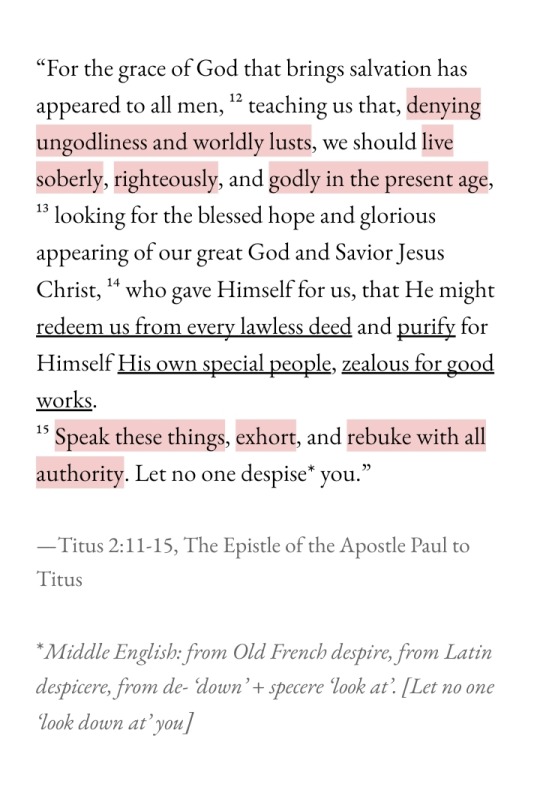#Apostles Paul
Explore tagged Tumblr posts
Text
Time Travel Book: MYSTERY OF THE STURBRIDGE KEYS, subtitled CHRISTMAS UNLOCKED
This book is a wonderful resource for teachers, parents, and home schoolers who wish to teach pre and ancient history to their junior high school students. This books sparks curiosity and critical thinking skills so needed in the world of today. It is a meaningful addition to any reading and language skills curriculum in both secular and Christian settings. Brie is the thirteen-year-old…

View On WordPress
#Abraham Lincoln#Annie&039;s Country Kitchen#Apostles Paul#B.T.&039;s Smokehouse#Babylonian Emoire#book about Sturbridge#Brimfield Antique Center#Charles Darwin#Charles Dickens#Christmas#Christmas By CandleLight#Dodanim#God#Greece#Greek Empire#Harriet Tubman#Harriet Tubman on the new $20 bill#Harrington Hospital#Jesus#McClean Hospital#Mede Empire#Nephilim#Noah#Panic of 1937#Persian Empire#Roman Empire#Sanctuary of the Great Gods#Sermon on the Mount#Southwick&039;s Zoo#Stephen
1 note
·
View note
Text
Me after rereading st Paul’s authentic epistles after years of blaming him for homophobia and misogyny in the church (I have since then educated myself on the sociocultural context of the time period he was writing in):

Like this dude was friends with multiple women whom he gave tremendous respect to, while highlighting how important they were within the growing Jesus movement (see: Junia, whom he calls "outstanding among the apostles", deacon Phoebe, church leader Chloe, Prisca- who might’ve been the author of the book of hebrews - etc.) He told men in a society in which women were viewed as objects "of course your wife is your property 🥰 but as her husband, you are *her* property as well!" And he tried to fix the double standard of wives being considered unfaithful if they slept with someone else vs husbands being able to bang as many people as they wanted (regardless of how the missus felt about it) by calling male cheaters "sexually immoral". He ALSO nearly threw hands with Peter when he expressed hesitation at eating with non Jews (inclusive king). He criticized the Roman empire and challenged Caesar’s legitimacy by claiming Christ as Lord. And ofc came up with the absolute banger of a line that is "There is no longer Jew or Greek; there is no longer slave or free; there is no longer male and female, for all of you are one in Christ Jesus".
I am no longer a Paul hater, but now a Paul defender.
#christianity#progressive christianity#st paul#saint paul#apostle paul#christian faith#liberation theology#leftist christian#progressive catholic#early christianity#saints#christian feminism#christblr#chrumblr#ramblings
239 notes
·
View notes
Text

not to carry on with my "lucy and edmund step into susan and peter's roles during the events of votdt" but in "prince caspian" we saw the pevensie siblings consistently falling into their throne order whenever they were near each other, always standing in that specific order whether on purpose or subconciously. throughout "voyage of the dawn treader", lucy and edmund continue that, only this time, thye fall into susan and peter's positions in the throne order, with lucy almost always standing on edmund's right side just as susan stood on peter's right.
but i think another detail, specifically in this shot from the end of the movie, is caspian standing in lucy's original spot, and eustace standing in edmund's original spot. caspian, who came into narnia as a stranger, and stepped into the role of king with ease, and who loves narnia and the narnians more than anything, and who vows to be a better king for his people. eustace, who was on edge, angry, and doubtful of everything around him for the first half of the movie, whose experiences changed him into a better person with the capability of connecting with his cousins.
#ALSO not to go back to my narnia characters + which apostles they are#but caspian and lucy representing matthew and john respectively#aka the two gospel writers#caspian and lucy who are the most devoted to narnia and the preservation of the country and the people#also whoever said eustace was saul/paul in that post you're SO right#hearth overanalyzes#chronicles of narnia#the voyage of the dawn treader#lucy pevensie#edmund pevensie#prince caspian#eustace scrubb
356 notes
·
View notes
Text
like most queer christians and progressive christians, i have Complicated Feelings about paul. but a seminarian at my church, a nonbinary disabled and Deaf lesbian who was married and had children with their late wife, recently talked to me about their love to paul, and their main point on how we should approached paul touched me deeply:
"i read paul as myself: a disabled, Deaf, nonbinary lesbian who has known constant suffering because of it. i read paul as myself, because paul is me. persecuted, hated, and afraid. just as i fear the world and its treatment of me, paul feared the world and its treatment of him. just as i face violence and hatred, paul faced violence and hatred. paul's words come to us from prison, from threats of violence, from fear, and yet also from a place of love. paul's fear as a christian are my fears as a disabled queer. even if paul's words hurt at times, they come from the same places of both fear of the world and love for the world that mine do. we are one in the same."
#saint paul#paul the apostle#christianity#christian#queer christianity#queer christian#progressive christian#progressive christianity
166 notes
·
View notes
Text
JINSHI CARRYING MAOMAO BRIDAL STYLE.






#JINSHI CARRYING MAOMAO BRIDAL STYLE.#kusuriyanohitorigoto#kusuriya anime#theapothecarydiaries#maomao#love#aesthetics#jinmao#jinshi#maomao and jinshi#anime#kusuriya no hitorigot#the apothecary diaries manga#the apology dance#the apothecary diaries#the apocalypse#the apotheosis#the apostle paul#knh maomao#knh jinshi#knh anime#knhedit#knh spoilers#jinshi x maomao#jinshi x reader#jinshi apothecary diaries#jinshi fanart#jinshi x you#gaoshun
468 notes
·
View notes
Text

Happy Feast Day
Saint Paul the Apostle
c.5 - 67
Feast Days: January 25 (The Conversion of Paul)
June 29 (Feasts of Saints Peter and Paul)
Patronage: Missions; Theologians; Gentile Christians
St. Paul has said of Heaven “Eye has not seen nor ear heard…what God has prepared for those who love him” (1 Cor 2:9).
Prints, plaques & holy cards available for purchase. (website)
59 notes
·
View notes
Text

The Apostle Paul
Artist: Rembrandt van Rijn (Dutch, 1606-1669)
Date: 1657
Medium: Oil on canvas
Collection: National Gallery of Art, Washington, DC, United States
Description
Throughout his life Rembrandt was fascinated by the apostle Paul, perhaps because Paul’s writings were the most important source for Reformation theology, or perhaps because he personified the Christian ideal of grace received independently of merit. Sitting at a table in his prison cell, the apostle ponders the words he is about to write in the epistle that lies before him. The solemn expression of Paul’s strong features underscores the depth of his belief and sense of purpose in his mission to spread Christianity to the heathens. The sword visible above the book is as much the "sword of the Spirit," the term he used to describe the word of God in his letter to the Ephesians, as it is the symbol of his military prowess before his conversion and the sign of his eventual beheading and martyrdom. The gentle light that illuminates Paul’s head, hand, and epistle has no defined point of origin. By depicting Paul at half length rather than full length, Rembrandt has brought the viewer closer to the figure of the saint, whose intensity of expression is keenly felt.
#painting#oil on canvas#rembrant van rijn#new testament#biblical art#christianity#epistles#apostle paul#dutch painter#european art#prison#table#book#writer#christian art#chair#robe#cloak#paper sheets#pen#prison cell#dutch culture#dutch art#17th century painting#art and the bible
106 notes
·
View notes
Note
Since you liked my side wound ask, I'm sharing you a (paraphrased) bit I loved from my priest's homily for Sunday of St. Thomas:
St. Thomas is never shamed by the narrative for asking to touch the wounds - if anything, it's the opposite, since Christ grants his request without complaint. Hence, where St. John represents coming to Christ through unwavering faith and Ss. Peter and Paul represent coming to Christ through repentance, St. Thomas represents coming to Christ through questioning - and all of them are saints for it.
Duuuude this is so great! God bless your priest, he's so right! There is no shame in Thomas' request!
Honestly i love it about Jesus so much that He heard Thomas saying "this is what I would need to believe" and He went "okay, then I'll give it to you. because I love you". And you know what? He did the same to me. He does the same to everybody. Coming to faith through questioning, arguing with God, doubting even but only sincere and hopeful doubting, and all of it being holy, man, God is so good!!
#christianity#st thomas the apostle#if i squint i think there might be “virgins martyrs and scholastics” hidden in here somewhere#st john the beloved#st peter#st paul#everyone has their own path and God loves each one equally this is so beautiful ❤️#btw Thomas' story is in John's Gospel and within this one book i can't help wondering if Jesus somehow avoiding Thomas wasn't a blessing#for it allowed him to later be able to touch Jesus' wounds#but if we consult it with Luke's Gospel it says that *all the apostles* touched the wounds?!#so the more ridiculous it is to call Thomas the Doubting one?! they all couldn't believe it even when Jesus was standing before them 😆#anyway thank you for the ask yay!
34 notes
·
View notes
Text

Giovanni Battista Pozzi The conversion of Saint Paul
Oil on alabaster laid down on slate, 45 x 34 cm, 16th century
75 notes
·
View notes
Text












Rubens' Apostles Series
"Around 1612 Peter Paul Rubens made a series of portraits of the twelve apostles, including Paul but without Jude. Originally a painting with the 'Savior of the World' was part of the series, but it has been lost.
Rubens made the half-portraits life-size. Each apostle has an attribute, a symbol by which he can be identified. They were depicted as strong men, with impressive old faces. Rubens may have been influenced by Michelangelo, after his trip to Italy.
The Duke of Lerma was a powerful minister of the Spanish king Philip III. Rubens had portrayed him in 1603."
The Apostles:
Saint Andrew
Saint Bartholomew
Saint James, The Elder
Saint James, The Minor
Saint John the Apostle
Saint Matthew
Saint Matthias
Saint Paul
Saint Peter
Saint Philip
Saint Simon
Saint Thomas
#Art#Paint#Painter#Painting#Set#Sets#Apostles#Rubens#Architecture#Madamelesfressange#Tumblr#Peter Paul Rubens
30 notes
·
View notes
Note
what do you think of the argument that 1 Corinthians 14:34 wasn’t written by Paul, but inserted later? supporters of the idea argue that it doesn’t fit at all with the rest of 1 Cor 14, which is all about prophesy etc, with just this one verse flung in, then carrying on about prophesy. also, that it doesn’t fit with Paul’s writings on women covering their heads in church (1 Cor 11:5), where he expects them to pray and prophesy (as long as their heads are covered). this isn’t a loaded question at all, i’m interested in your interpretation with your love of Paul and much more knowledge of him than i have!
Grace!!! I love your questions. And I do love Paul lol. So, despite being aware of this argument I’ve never actually looked into it before today so we’re getting some off the cuff interpretation from me lolll
So the structure of 1 Corinthians is
1-4: Unity in the Diversity
5-7: Sexual Ethic in the Kingdom
8-10: Food and Idols
11-14: Unity in Worship
15-16: The Resurrection
So the weird issue in chapter 14 comes right after (1) Paul’s famous essay on love as the meaning of the universe which should then motivate you to focus on loving others rather than elevating yourself, and (2) Paul shaming the Corinthians for using the assembly as a talent show and not a common union based on love.
Paul says (I don’t have a great translation on hand so bear with me lol)
All people must speak one at a time
Speaking in tongues must have an interpreter (and not just Dionysian madness).
Prophets need to comport themselves and not monopolize the assembly and go one by one.
Women be silent and, if you’re confused, ask your husbands questions at home. It is shameful for a woman to speak. (Also it is the word “silent” and not “quiet”)
You should listen to me, Paul, because I gives the commandments of the Lord
So the obvious issue in the verse (aside from the rather misogynistic vibes) is that it is in direct contradiction with the rest of scripture which places great emphasis on the (ideal) inherent equality of women (again. Ideally) and also Paul’s own writing in this very letter where he gives details on how women in the Assembly of God are to pray, speak in tongues (which Paul describes in the letter as the language of spiritual beings), and prophesy (that is, preach a direct word from God). It is also inconsistent with Paul's dealings with his co-workers in that women such as Prisca, Phoebe and Junia could not have functioned as Church leaders and apostles if they were not allowed to speak in public.
So as such there are (per usual) a myriad of differing interpretations that fall under these camps. A reading of
Subservience
Culture
Interpolation
Disagreement
I will not be nice nor gentle: if you hold the first view you are a misogynist with a poor exegesis of scripture. The fact that some Christian traditions have taken to literally silencing women in the church and refusing that they speak. Quite frankly I do not care if Paul WAS saying that no woman should ever speak in church ever — if he was, his words should be rejected as the ravings of a man who had no connection to Jesus of Nazareth, the Anointed One. Why? Not just because I personally find it disgusting (which. Clearly I do. I cannot be subtle I hate misogyny) but because it is inconsistent with the biblical narrative as a whole from Genesis 1 to Revelation 22. If we claim that the Holy Scriptures are a unified story that leads to Jesus then we have no choice but to interpret scripture in a way that is consistent as a whole. And this one does not cut it. Also it’s misogynist. Get rekt by the image of God poem.
Next is the idea that this is a culturally contextual commandment. As such they would argue this doesn’t apply to all believers in all churches — either in 2025 or back in 56 when Paul write this letter. Some married women who sat together were being rude — talking and arguing during the sermon instead of listening to the singing, praying, and prophesying. They need to be quiet and ask their husbands whatever questions they have at home.
Slight problem imo: the idea that married women sat separately than the unmarried. I haven’t seen or found anything that would lead me to believe that there was a separation of the married and the unmarried, or any sex based separation. In fact, men and women of varying careers and ethnicities and socioeconomic statuses sitting together at one table to take the bread and the cup was a big deal and very controversial to many. That said, this is Corinth, the church infamous for being a problem basically all day and all the time. Also there was an almost schism that went down regarding sex and marriage vs consecrated virginity. Amongst other things (again Corinth had lots of problems). So it is possible that there was a division in seating between married and unmarried men and women.
Edit: interjecting here after having read N.T. Wright’s paper on the biblical basis for women’s service in the church. I’ll just quote the whole thing, “I have always been attracted, ever since I heard it, to the explanation offered once more by Ken Bailey. In the Middle East, he says, it was taken for granted that men and women would sit apart in church, as still happens today in some circles. Equally important, the service would be held (in Lebanon, say, or Syria, or Egypt), in formal or classical Arabic, which the men would all know but which many of the women would not, since the women would only speak a local dialect or patois. Again, we may disapprove of such an arrangement, but one of the things you learn in real pastoral work as opposed to ivory-tower academic theorizing is that you simply can’t take a community all the way from where it currently is to where you would ideally like it to be in a single flying leap. Anyway, the result would be that during the sermon in particular, the women, not understanding what was going on, would begin to get bored and talk among themselves. As Bailey describes the scene in such a church, the level of talking from the women’s side would steadily rise in volume, until the minister would have to say loudly, ‘Will the women please be quiet!’, whereupon the talking would die down, but only for a few minutes. Then, at some point, the minister would again have to ask the women to be quiet; and he would often add that if they wanted to know what was being said, they should ask their husbands to explain it to them when they got home.” With this new context I now find this to be a much stronger argument. And if it weren’t for the next problem I’d embrace it with open arms. But, alas, earwax
Bigger problem: the Greek. Unlike in 1 Timothy where it says “Let women learn in quietness” this says very strongly in Greek that the women must be “silent”, as if required so by law, and that is “disgraceful/shameful” (another very strong word in Greek ) if they do not. This is an honor-shame culture so for something to be shameful is really, really bad. The Greek seems much too strong and intense for the cultural argument to be the case.
Next is the interpolation interpretation: this is actually very popular among scholars. The reasons being
the passage interrupts the flow of Paul's argument
it follows language from the First Epistle to Timothy, which was probably not written by Paul
it contradicts Paul's neutral or positive mention of women prophesying, praying, and taking other speaking and leadership roles in the church
the passage is alternatively found at different locations in some manuscripts, which may indicate it was originally inserted as a marginal note and then unstably inserted into the text itself
some manuscripts give evidence of a prior record of its absence from the text.
And honestly? I find those to be really convincing arguments! I actually was unaware of all of this before today.
Interestingly Jerome Murphy-O'Connor, in The New Jerome Biblical Commentary, when arguing for this position says, “1 Corinthians 14:34–35 are not a Corinthian slogan, as some have argued…, but a post-Pauline interpolation. ... Not only is the appeal to the law (possibly Genesis 3:16) un-Pauline, but the verses contradict 1 Corinthians 11:5. The injunctions reflect the misogyny of 1 Timothy 2:11–14 and probably stem from the same circle. Some mss. place these verses after 40.” Ignoring the jab at 1 Timothy (on which i find the Cult of Diana theory to be most convincing), I am intrigued at his words about a possible appeal to the Torah.
The verse is: “Women should be silent in the assemblies. For they are not allowed to speak but are to subject themselves, just as the Torah also says.”
Genesis 3:16 says: “Your desire shall be toward your husband, and he shall tyrant over you.” Which if you are a longtime follower of this blog (so like one of you lolll) you might know I take this to mean “You will have a tendency to dominate your husband, and he will have a tendency to act as a tyrant over you.” For why desire means dominate read the next chapter.
(Sidenote: both the woman being subjugated and the man eating the herb of the field are both forms of humanity becoming beasts. Meditate on Genesis 1 and 3.)
Where was I? Right, the interloper theory. Murphy-O'Connor says that the hyperlink is not Pauline but I’m not sure about that. An appeal to Genesis 1-3 to make a theological argument is very Pauline to me. Actually it’s just very biblical. All biblical theology throughout the prophets comes out of Genesis 1-3. It’s the same in the apostles. When Paul wants to talk about gender equality he turns to Genesis 1! Anyway. I don’t believe Paul wrote that line or made that allusion but I do think it’s inaccurate to say that the hyperlink is un-Pauline.
Finally there is the disagreement interpretation, which I think is the most recent theory. Basically, in the same way earlier in the letter Paul will quote a letter from the Corinthians — “It is good for a man to not touch a woman” and “We know that we all have knowledge” — and then disagree with it — “Nevertheless because of sexual immorality” and “Knowledge puffs up, but love builds up” — he is doing the same thing here. Quoting a letter from the Corinthians and then following up with a disagreement.
And with the way that our modern bibles have the text, this too is a compelling argument. The injunction against women speaking is immediately followed with with a negative statement: “[ē] did the word of God originate with you?” And then the controversy has to do with that ē (‘eh’). It can mean “or/than/either” or it can mean “hey/now” but either way it’s about contesting and contrast.
Now here is where we begin to get into nerdy stuff about language which uh is not my wheelhouse. I love biblical studies and if I ever went into academic study of theology, that is where I would focus. But the second you want me to open a Hebrew/Greek dictionary I’m running away. Just know, there are a lot of smart people who believe it is a quotation that begins with “As in all the assemblies of the saints” and ends with “shameful for a woman to speak in the assembly”, and then is contested by Paul “What! Did the word of God originate with y’all, or are y’all the only ones it has reached?"
The thing that bothers me about this interpretation: the manuscript variations. However, David Odell-Scott argues that those western manuscripts that moved 34-35 to a different position (after verse 40) are the work of a patriarchal redactor seeking to "shelter" and protect the Corinthian slogan from Paul's emphatic critique in verse 36. By associating these verses with the "decency and order" of verse 40, the redactor undermined the egalitarian interpretation of the canonical version, and incorrectly presented the Corinthian voice as the voice of Paul. (Sidenote: Odell-Scott seems to also dislike 1 Timothy. Interesting)
In summary because Kyrie Eleison that was a lot! So ranked —
Subordination: misogynist, anti biblical, anti Christian, anti Pauline. Should be rejected and burned with Gehenna fire
Cultural: a pretty good interpretation of it wasn’t for the intense harshness of the Greek
Interpolation and Disagreement: both are tied for me. Both have really good points that take both the textual and cultural history into view. Also both work structurally imo. Whether you have the injunction or not, the essay still flows perfectly.
I: Don’t be a showboat who creates disorder -> What!? Did the word of God come to y’all alone!?!
D: Don’t be a showboat who creates disorder -> “Something something misogynist trad” -> What!? Did the word of God come to y’all alone!?!
So… yeah. Love God. Love your neighbor. May whoever the misogynist was who wrote that have his bones ground to dust. And may the favor of our God and Lord Jesus be with you, and may the God of Peace crush the adversary underneath your feet.
#something to meditate on#christianity#jesus#bible#christian#faith#jesus christ#keep the faith#faith in jesus#st paul the apostle#christblr#christian faith#christian tumblr#christian motivation#bible study#christian blog#bible verse#progressive christian#queer christianity#progressive christianity#queer christian#lgbt christian#christian feminism#egalitarianism
33 notes
·
View notes
Text

#bible verse#Titus#Christianity#new testament#bible study#bible reading#paul the apostle#christian community#christian encouragement#christian motivation#christian quotes#christian#christians#biblical scripture#scripture#bible scripture#God#Jesus Christ#Holy Spirit#holy bible#holy scripture#christian blog#bible#bible verse of the day#verse of the day#life quotes#man of God#faith#faith in God#christian women
134 notes
·
View notes
Photo

Mitteltafel Auferstehung Christi, 1611-1612 von Peter Paul Rubens
#kunst#kunstwerk#art#artwork#peter paul rubens#künstler#artist#religion#religiöse kunst#religious art#jesus#christ#christus#jesus christ#auferstehung#resurrection#apostel#apostle#gott#god#vater#father#herr#lord#bibel#bible#glaube#faith#beten#pray
107 notes
·
View notes
Text
Fengxian: If you win, I’ll give you anything you’d like. If I win, I’ll take anything I want. Which board would you like to play with?
Lakan: chooses Go….knowing Fengxian always wins at Go
#Fengxian: If you win#I’ll give you anything you’d like. If I win#I’ll take anything I want. Which board would you like to play with?#Lakan: *chooses Go….knowing Fengxian always wins at Go*#kusuriya no hitorigoto#the apothecary diaries#theapothecarydiaries#maomao#kusuriya anime#jinshi#maomao and jinshi#love#jinmao#aesthetics#the apocalypse#the apostle paul#anime#kusuriyanohitorigoto#the apotheosis#the apology dance
120 notes
·
View notes
Text

St. Paul Shipwrecked on Malta, Laurent de La Hyre, 1630
#art#art history#Laurent de La Hyre#religious art#Biblical art#Christian art#Christianity#Book of Acts#St. Paul#Apostle Paul#Baroque#Baroque art#French Baroque#Neoclassicism#French art#17th century art#oil on canvas#Birmingham Museum of Art
67 notes
·
View notes
Text

The Four Evangelists
Artist: Peter Paul Rubens (Flemish, 1577 - 1640)
Date: c. 1625
Medium: Oil on canvas
Collection: The John and Mable Ringling Museum of Art, Sarasota, Florida, United States
Description
Rubens' painting of The Four Evangelists displays a group of figures in motion. At the far left is St. Luke with his ox, symbolic of sacrifice. This beast is traditionally an attribute of Luke, since his Gospel begins with the sacrifice of Zachariah. Next to Luke is St. Mark, his Gospel under his arm. At his side walks the lion that alludes to the Christ of the Resurrection. St. Matthew and the angel are given a central place. With one hand, the angel points to a gospel passage; with the other, he gestures heavenward, reflecting the divine inspiration with which Matthew wrote his Gospel. St. John the youngest of the group, looks up at an eagle. The eagle, thought to be able to look directly into the sun, denotes John's vision of the Apocalypse. The cup with the snake refers to poison that John drank, proving his faith.
#painting#oil on canvas#the four evangelists#christianity#flemish culture#artwork#fine art#christian art#flemish painter#symbolism#apostle luke#ox#apostle mark#book#lion#apostle matthew#angel#gospel passage#apostle john#eagle#cup#snake#christian faith#biblical art#oil painting#peter paul rubens#european art#17th century painting#the john and mable ringling museum of art
22 notes
·
View notes